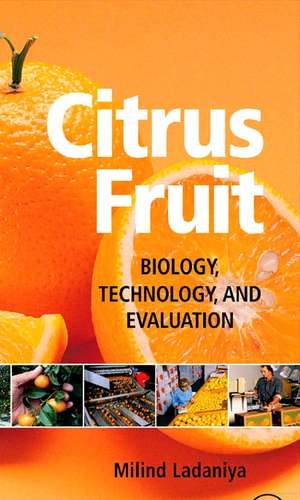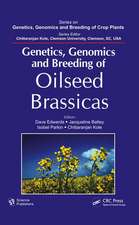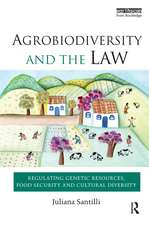Citrus Fruit: Biology, Technology and Evaluation
Autor Milind Ladaniyaen Limba Engleză Hardback – 5 feb 2008
* Provides practical tips for post harvest management. * Includes all aspects of citrus fruit biology, technology and quality evaluation.* Discusses biotechnological applications and potential fresh citrus fruit quality improvement * Evaluates medicinal and therapeutic applications and recent clinical findings * Exhaustive glossary included
| Toate formatele și edițiile | Preț | Express |
|---|---|---|
| Hardback (2) | 440.55 lei 5-7 săpt. | |
| ELSEVIER SCIENCE – 5 feb 2008 | 440.55 lei 5-7 săpt. | |
| ELSEVIER SCIENCE – 25 aug 2022 | 1142.98 lei 5-7 săpt. | +130.64 lei 4-10 zile |
Preț: 440.55 lei
Preț vechi: 566.90 lei
-22% Nou
Puncte Express: 661
Preț estimativ în valută:
84.31€ • 91.55$ • 70.82£
84.31€ • 91.55$ • 70.82£
Carte tipărită la comandă
Livrare economică 15-29 aprilie
Preluare comenzi: 021 569.72.76
Specificații
ISBN-13: 9780123741301
ISBN-10: 0123741300
Pagini: 576
Ilustrații: Illustrations, maps
Dimensiuni: 152 x 229 x 33 mm
Greutate: 1.05 kg
Editura: ELSEVIER SCIENCE
ISBN-10: 0123741300
Pagini: 576
Ilustrații: Illustrations, maps
Dimensiuni: 152 x 229 x 33 mm
Greutate: 1.05 kg
Editura: ELSEVIER SCIENCE
Public țintă
Libraries and research institutes, researchers, scientists, and professors involved in horticulture, botanical research, food science, biotechnology, citrus production, postharvest handling, citrus marketing, and citrus research; nutritionists and dieticiansCuprins
FINAL:1) Introduction- An Overview 2) Commercial fresh citrus cultivars and major producers3) Post harvest losses4) Pre-harvest factors affecting fruit quality and post-harvest life5) Fruit morphology, anatomy and physiology 5.1) Fruit morphology 5.2) Fruit anatomy 5.3) Fruit physiology 6) Fruit biochemistry 6.1) Carbohydrates 6.2) Organic acids 6.3) Nitrogenous compounds 6.4) Enzymes 6.5) Lipids, waxes and other related compounds 6.6) Pigments 6.7) Phenolics, Flavonoids and limonoids 6.8) Vitamins 6.9) Inorganic constituents 6.10) Volatiles7) Growth, maturity, grade standards and physico-mechanical characteristics of fruit 7.1) Growth and development 7.2) Maturation 7.3) Indices of maturity, fruit grades and standards 7.4) Physical and mechanical characteristics8) Harvesting9) Preparation for fresh fruit market 9.1) Degreening 9.2) Packinghouse operations 9.3) Post harvest treatments- Coatings, PBRs & other chemicals10) Packaging 10.1) Containers and other packaging materials 10.2) Film wrapping 10.3) Modified atmosphere packaging 11) Pre-cooling 12) Storage systems and response of citrus fruits 12.1) Refrigerated storage 12.2) Controlled atmosphere and hypobaric storage 12.3) Evaporative and other natural systems 12.4) Ambient storage13) Transportation14) Domestic marketing and distribution systems 15) Irradiation16) Postharvest diseases and management 16.1) Post harvest diseases 16.2) Pesticides, residues and tolerances 16.3) Organic post-harvest management 16.3.1) Bio-agents 16.3.2) Botanicals and other non-hazardous methods 16.3.3) Physical methods 17) Physiological disorders and management 18) Postharvest treatments for insect control 19) Fruit quality control, evaluation and analysis 19.1) Quality control and assurance systems 19.2) Quality evaluation and instruments 19.3) Fruit analysis20) Nutritional and medicinal value of citrus 21) Biotechnological applications in fresh citrus fruit 22) World fresh citrus trade 22.1) Exports and World trade 22.2) Quarantine issues


